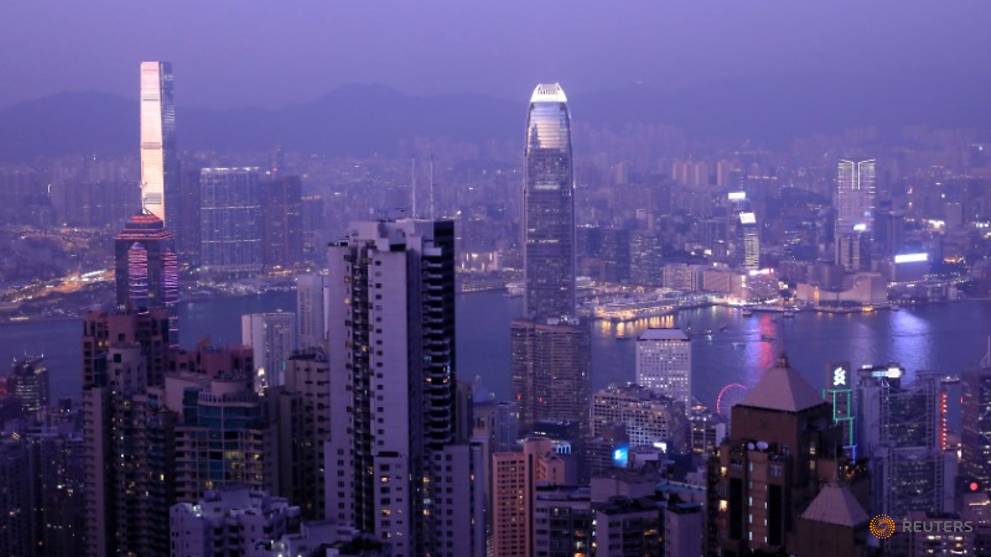
BEIJING: Beijing unveiled details of its new national security law for Hong Kong on Saturday (Jun 20), paving the way for the most profound change to the city's way of life since it returned to Chinese rule in 1997.
The much-anticipated legislation, which has provoked deep concerns in Washington and Europe, includes a national security office for Hong Kong to collect intelligence and handle crimes against national security, the official Xinhua news agency reported.
The future Hong Kong security agency would be established by China's central government and would "supervise, guide, coordinate and support" the maintenance of national security in the territory, Xinhua said.
It said Hong Kong leader Carrie Lam could also appoint specific judges to hear national security cases, a move likely to unnerve some investors, diplomats and business leaders in the global financial hub.
National security activities would protect human rights and freedom of speech and assembly, it said, without providing details.
If Hong Kong laws clash with the provisions of the upcoming legislation, the power of interpretation lies with the Standing Committee of China's national legislature, Xinhua added.
China says the draft law is aimed at tackling separatist activity, subversion, terrorism and collusion with foreign forces, but critics fear it will crush wide-ranging freedoms that are seen as key to Hong Kong's status as a global financial centre.
READ: Hong Kong chief Carrie Lam says opponents of security law are 'enemy of the people'
The details of the law were unveiled following a three-day meeting of the top decision-making body of China's parliament.
The exact time frame for enacting the law was unclear, although political analysts expect it will take effect ahead of key Legislative Council elections in Hong Kong on Sep 6.
Xinhua said the Standing Committee would "soon finalise" the legislation.
"BEIJING'S HAND"
Alvin Yeung, a Hong Kong lawmaker, said the details on what will constitute a crime are "highly vague, which is of course, extremely worrying".
"More importantly, it is almost like Beijing's hand is getting right in the centre of the administrative and judicial reins of Hong Kong."
READ: Hong Kong security law like 'anti-virus software': Beijing official
Leung also expressed alarm at Xinhua's mention of a separate security "council" to be headed by Hong Kong's chief executive, whose duties would include choosing judges to handle national security cases.
"What worries me more is if any judges, in the future, when they try the cases and (rule) in favour of the defendant, would those judges be removed? That could be possible," he said.
China's move to impose the law directly on Hong Kong, bypassing the city's legislature, comes after a year of sometimes violent anti-government and anti-Beijing protests that mainland and local authorities blame "foreign forces" for fomenting.
Some political commentators say the law is aimed at sealing Hong Kong's "second return" to the motherland after Britain's 1997 handover failed to bring residents of the restive city to heel.
READ: Group of 86 NGOs issue letter calling for scrapping of planned Hong Kong security law
At the time of the handover, China promised to allow Hong Kong a high degree of autonomy for 50 years under what is known as the "one country, two systems" formula of governance, although democracy activists say Beijing has increasingly tightened its grip over the city.
Beijing proposed the new legislation last month, drawing a swift rebuke from Britain and the United States.
On Friday, Secretary of State Mike Pompeo said Washington would in future treat Hong Kong as a Chinese city, rather than a semi-autonomous one, and the US was working its way through a decision-making process over who would be held accountable over curbs to Hong Kong's freedoms.
Underscoring global concerns over the move, the European Parliament on Friday voted in favour of taking China to the International Court of Justice in The Hague if Beijing imposes the security law on Hong Kong.
READ: Commentary: The intractable tug of war between China and Hong Kong
China has repeatedly warned foreign governments against interfering in its internal affairs.
Officials in Beijing and Hong Kong have been at pains to reassure investors that the law will not erode the city's high degree of autonomy, insisting it will only target a minority of "troublemakers" who pose a threat to national security.
Hong Kong has said the law will not erode investor confidence and people who abide by it have no reason to worry.
Despite such assurances, the law has alarmed business groups, diplomats and rights organisations, further strained ties between the US and China, and prompted the G7 foreign ministers to urge Beijing not to go through with it.
https://news.google.com/__i/rss/rd/articles/CBMiWGh0dHBzOi8vd3d3LmNoYW5uZWxuZXdzYXNpYS5jb20vbmV3cy9hc2lhL2hvbmcta29uZy1jaGluYS1uYXRpb25hbC1zZWN1cml0eS1sYXctMTI4NTQ3NDLSAQA?oc=5
2020-06-20 12:14:12Z
CBMiWGh0dHBzOi8vd3d3LmNoYW5uZWxuZXdzYXNpYS5jb20vbmV3cy9hc2lhL2hvbmcta29uZy1jaGluYS1uYXRpb25hbC1zZWN1cml0eS1sYXctMTI4NTQ3NDLSAQA
Tidak ada komentar:
Posting Komentar